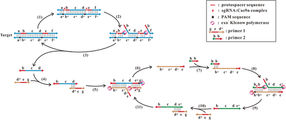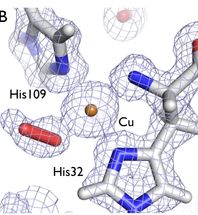Gaseous emissions from dinosaurs may have warmed prehistoric earth
Sauropod dinosaurs could in principle have produced enough of the greenhouse gas methane to warm the climate many millions of years ago, at a time when the Earth was warm and wet. That's according to calculations reported in Current Biology, a Cell Press publication.
The hulking sauropods, distinctive for their enormous size and unusually long necks, were widespread about 150 million years ago. As in cows, methane-producing microbes aided the sauropods' digestion by fermenting their plant food.
"A simple mathematical model suggests that the microbes living in sauropod dinosaurs may have produced enough methane to have an important effect on the Mesozoic climate," said Dave Wilkinson of Liverpool John Moores University. "Indeed, our calculations suggest that these dinosaurs could have produced more methane than all modern sources — both natural and man-made — put together."
Wilkinson and study coauthor Graeme Ruxton from the University of St Andrews were studying sauropod ecology when a question dawned on them: If modern cows produce enough methane gas to be of interest to climate scientists, what about sauropods? They teamed up with methane expert Euan Nisbet at the University of London to work out the numbers.
"Clearly, trying to estimate this for animals that are unlike anything living has to be a bit of an educated guess," Wilkinson said.
Animal physiologists have studied methane production from a range of modern animals to derive equations that predict methane production from animals of different sizes. It turns out that those calculations depend only on the total mass of the animals in question. A medium-sized sauropod weighed something like 20,000 kilograms, and sauropods lived in densities ranging from a few large adults to a few tens of individuals per square kilometer.
Wilkinson, Ruxton, and Nisbet therefore calculate global methane emissions from sauropods to have been 520 million tons (520 Tg) per year, comparable to total modern methane emissions. Before industry took off on modern Earth about 150 years ago, methane emissions were roughly 200 Tg per year. By comparison, modern ruminant animals, including cows, goats, giraffes, and others, produce methane emission of 50 to 100 Tg per year.
The study's conclusions not only show "just how strange and wonderful the workings of the planet are" but also serve as a useful reminder for the importance of microbes and methane for global climate, the researchers say.
Most read news
Organizations
Other news from the department science

Get the chemical industry in your inbox
By submitting this form you agree that LUMITOS AG will send you the newsletter(s) selected above by email. Your data will not be passed on to third parties. Your data will be stored and processed in accordance with our data protection regulations. LUMITOS may contact you by email for the purpose of advertising or market and opinion surveys. You can revoke your consent at any time without giving reasons to LUMITOS AG, Ernst-Augustin-Str. 2, 12489 Berlin, Germany or by e-mail at revoke@lumitos.com with effect for the future. In addition, each email contains a link to unsubscribe from the corresponding newsletter.




























































